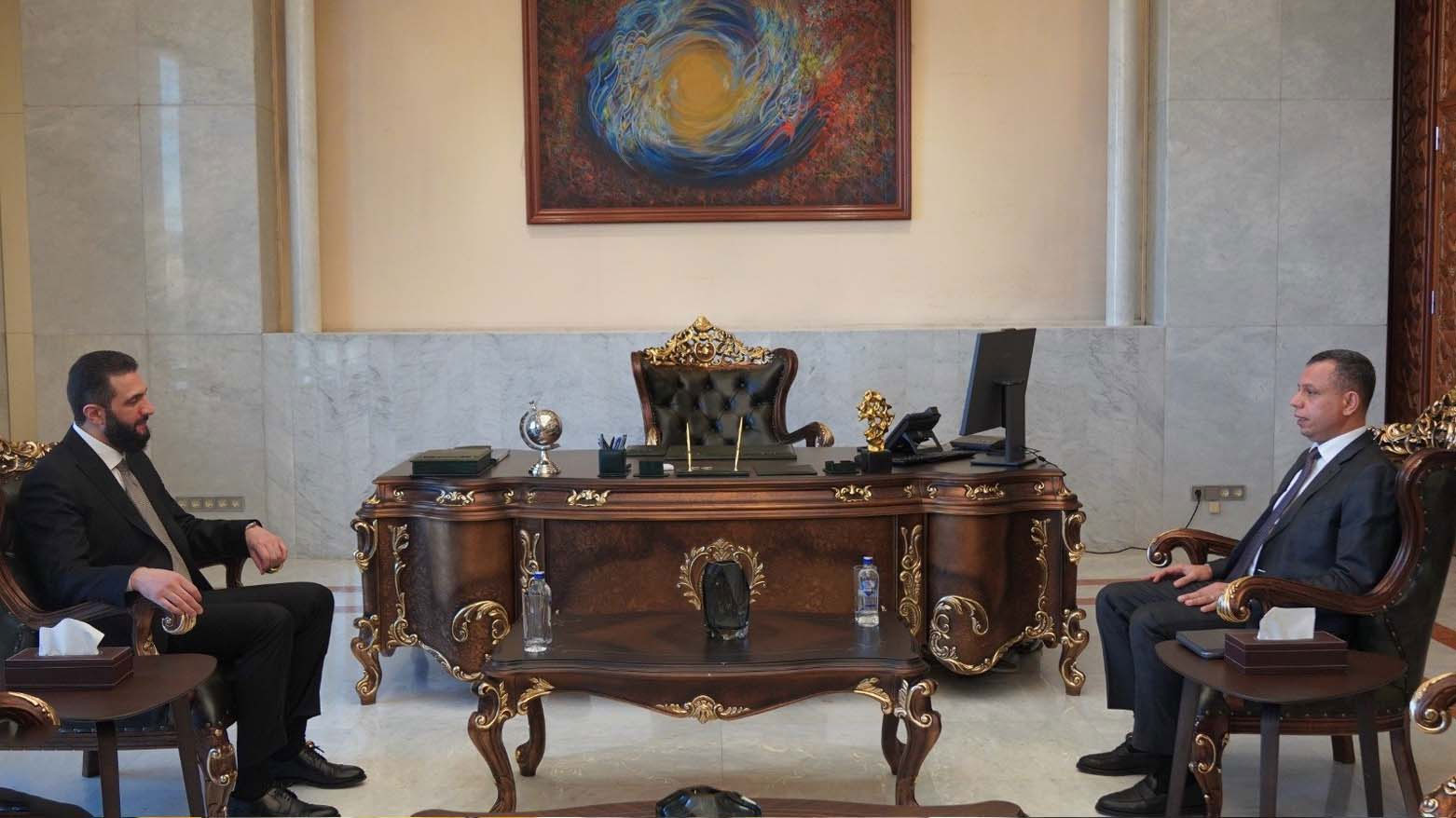Iraq, Syria in Talks to Reopen Key Oil Gateway to the Mediterranean
Iraqi intelligence chief Hamid al-Shatri and Syrian President Ahmed al-Sharaa discussed reviving the Iraq-Syria oil pipeline, with al-Sharaa affirming Syria’s readiness to deepen ties and support regional recovery.

By Kamaran Aziz
ERBIL (Kurdistan24) — In a significant diplomatic and security development, an Iraqi government delegation led by the head of the National Intelligence Agency, Hamid al-Shatri, arrived in Damascus on Friday for talks with Syrian President Ahmed al-Sharaa and senior Syrian officials. The visit marks a notable step forward in the efforts of both neighboring countries to intensify cooperation on counter-terrorism, enhance border security, and revive economic ties.
According to information provided to Iraqi media by sources within the delegation, President al-Sharaa and Director al-Shatri discussed bolstering bilateral cooperation aimed at combating terrorism and reinforcing joint measures to secure their shared border. The discussions underscore the mutual recognition of persistent threats along the porous frontier, where remnants of extremist groups continue to pose risks.
The meeting also explored avenues to deepen economic collaboration, with particular focus on expanding trade exchanges and revitalizing strategic infrastructure projects. A central topic was the possibility of rehabilitating the long-defunct Iraqi oil pipeline that historically transported crude oil through Syria to ports on the Mediterranean Sea, a route that could offer Iraq renewed access to international markets and provide Syria with vital transit revenues.
According to the Syrian Arab News Agency (SANA), President al-Sharaa and Hamid al-Shatri affirmed Iraq's strong support for Syria’s stability and territorial integrity. They emphasized the importance of joint cooperation to achieve security and stability across the region. The two sides also agreed to encourage investment and finalize trade agreements, particularly in the fields of oil and grain. It was agreed to establish joint committees to oversee the implementation of these agreements and to develop a mechanism to reopen and operate the Al-Tanf–Al-Waleed border crossing between the two nations.
During the meeting, al-Shatri conveyed a personal message from Iraqi Prime Minister Mohammed Shia al-Sudani, inviting President al-Sharaa to attend the upcoming Arab Summit, scheduled to be held in Baghdad on May 17, 2025.
The Iraqi delegation—which includes representatives from the Ministry of Interior, Ministry of Oil, Ministry of Trade, and the Border Crossings Authority—is scheduled to hold several rounds of talks with Syrian counterparts. Discussions are expected to address the operational status of border crossings, measures to prevent violations, and the coordination of customs and security efforts.
According to a statement from the media office of Iraqi Prime Minister Mohammed Shia al-Sudani, the delegation's visit aims to "consolidate joint work to face common challenges and promote regional stability," stressing that the protection of borders and counter-terrorism efforts remain a top priority.
The visit comes at a time when both countries are seeking to recover from years of devastating conflict and economic hardship. For Iraq, securing its western frontier is vital to preventing the resurgence of extremist threats and facilitating smoother trade routes. For Syria, improving economic connectivity with Iraq represents a lifeline to reinvigorate its battered economy amid ongoing reconstruction efforts.
The potential revival of the Iraqi oil pipeline through Syria, if realized, could also carry major geopolitical implications, potentially offering Baghdad an alternative export route at a time when regional energy politics remain highly sensitive.
The talks in Damascus are expected to continue over the weekend, with both sides aiming to finalize preliminary agreements that would set the framework for broader political, security, and economic collaboration between the two nations.